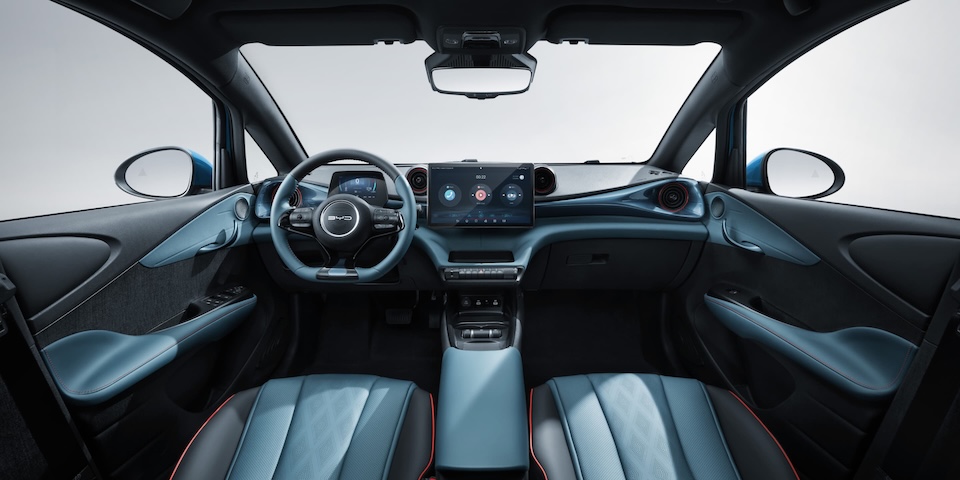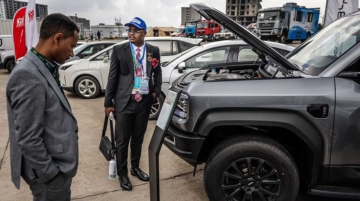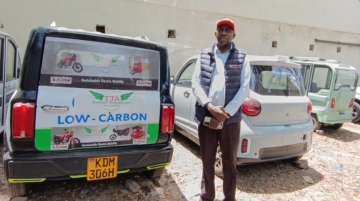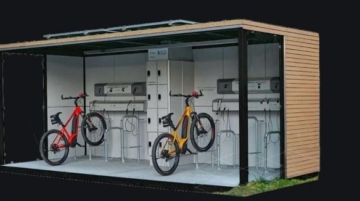
This is a free preview of the upcoming Africa EVs Weekly Digest, part of the new CGSP Intelligence service launching in Summer 2025.
The African electric vehicle (EV) market is projected to grow by 25 percent annually over the next five years. This means that Chinese automakers who establish early dominance will benefit from a first-mover advantage. They could secure brand loyalty and control EV infrastructure, which is currently still very limited.
Despite this promise, the second-hand vehicle market will remain a major contender in the mobility market. Players like BYD, which is now exporting cars from its new factory in Thailand to Europe, could benefit if this trend continues.
With second-hand EVs now retailing in various countries, and the possibility of many of the electric vehicles in Europe ending up in African countries, the new vehicle market will remain constrained unless prices come down or local manufacturing takes root.
This week on EVs in Africa:
BYD Thailand Starts Exporting Vehicles to Europe
Germany, the Netherlands, and Belgium became the first countries to import Dolphin hatchbacks from BYD’s Thai facility.
The first shipment of more than 900 hatchbacks made BYD’s Thai factory its first overseas passenger-car production base to achieve this feat. The factory started operations in July last year with a plan to produce 150,000 vehicles annually.
Why This Matters: Thailand’s EV manufacturing sector is the envy of many African countries, but few are willing to introduce subsidies to boost the local manufacturing of vehicles. This means they will continue struggling with second-hand cars, most of which will be supplied by Thai-based Chinese automakers.
Lack of Infrastructure Holding Back Ghana’s EV Adoption
Ghana is West Africa’s frontrunner in electric vehicle adoption, with approximately 17,000 EVs on its roads by the end of 2023. Only around 1,000 of these are four-wheeled models. Chinese brands dominate the market, facilitated by local partners such as SolarTaxi and Kofa, which import and assemble affordable two- and three-wheelers, compact cars, and buses. Despite this momentum, the lack of public charging infrastructure remains a critical barrier. Only seven are operational today. They are concentrated in Accra, severely limiting EV utility and adoption beyond the capital.
Why This Matters: The lack of charging stations across Africa is hampering EV adoption. Unless stakeholders, including governments, address this challenge, the EV shift will remain a mirage, even as African countries continue to bleed their economies to import fuel.
Record Chinese EV Deliveries Will Impact African Countries
Chinese EV makers achieved record-setting deliveries in August, underscoring strong domestic momentum.
Leapmotor delivered 57,066 vehicles, while Xpeng reached 37,709 units, and Geely Galaxy hit 110,666 deliveries worldwide. The automakers registered a 13.8%, 2.7% and 16.4% month-on-month increase, respectively.
Why This Matters: Although the report primarily focuses on China, this surge is also relevant to African buyers. As Chinese models become more affordable and widely adopted in China, they are increasingly being considered for export or local assembly in different African countries.
Chinese EV Makers Cash in on Western Luxury Imitations
China’s electric vehicle makers are gaining ground by designing models that closely resemble Western luxury cars such as the Range Rover and Porsche, offering familiar high-end aesthetics at much lower prices.
For African markets, where both affordability and style are essential, this trend could accelerate EV adoption, although it raises questions about the quality of these vehicles.
Why This Matters: Many African countries are inundated with counterfeit brands, ranging from clothing to phones, and if the same applies to electric vehicles, then they could suffer the same fate of low-quality, high-waste vehicles. If this becomes the case, it will introduce risks, including safety concerns, in what would become a race to the bottom.
In Context
Africa’s electric vehicle market is at a critical turning point, projected to grow 25 percent annually over the next five years. Chinese automakers, already securing early footholds, stand to gain significant first-mover advantages by shaping infrastructure, building brand loyalty, and establishing long-term dominance.
The takeaway: While EV growth is promising, it is complicated by entrenched reliance on the second-hand vehicle market. With companies like BYD ramping up exports from Thailand to Europe, Africa risks becoming a destination for surplus used EVs unless local manufacturing expands or governments intervene with supportive policies. The affordability gap remains wide, limiting the appeal of new vehicles for most consumers.











